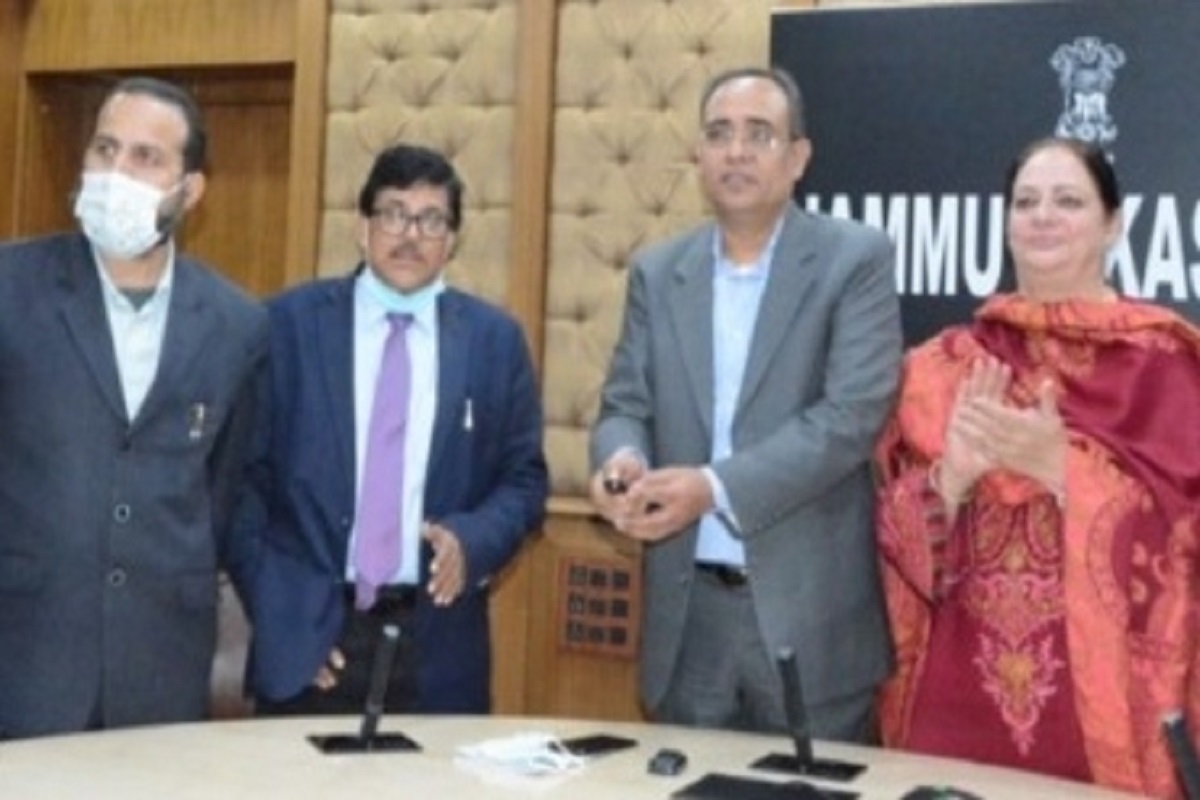Swiggy to foray into ownership, management of sports teams business
Food delivery and quick commerce player Swiggy is setting up a subsidiary to foray into the growing demand for recreational activities.
LMS involves on boarding of teaching, learning, evaluation, inspection and administration among a host of other activities of education institutes on an online platform. The system helps bring transparency in the system and helps better collaboration through technology.

Photo: SNS
Principal Secretary, Higher Education Department, Rohit Kansal launched Learning Management System (LMS) on pilot basis in eleven colleges in Jammu and Kashmir.
The launch of the online system was held through virtual mode from civil secretariat Jammu. A live demonstration of the LMS was also given by three degree colleges during the launch event.
Advertisement
Principal Secretary School Education, Bishwajit Kumar Singh was also present at the launch.
Advertisement
LMS involves on boarding of teaching, learning, evaluation, inspection and administration among a host of other activities of education institutes on an online platform.
The system helps bring transparency in the system and helps better collaboration through technology.
The Principal Secretary congratulated the pioneering colleges and lauded the efforts of all the concerned colleges for timely implementation of the online system.
The Islamia College of Science & Commerce was specially lauded for taking the lead and mentoring other colleges in this regard.
Rohit Kansal said that LMS intends to improve both, learning and teaching outcomes. He said that colleges would be progressively shifting of a complete suite of Enterprise Resource Planning (ERP) solutions and the introduction of the LMS was only the first step in this direction. All modules would eventually be made digital through ERP solutions, he informed.
He directed the colleges to streamline their LMS and consider both online as well as offline mode of education in implementation. He directed that the colleges ensure successful use of LMS and enable real time monitoring of all academic activities, staff and student attendance and other parameters.
He directed that provision for feedback by students be incorporated so that they could give give feedback on the quality of instruction on a on weekly basis.
Similarly, the teachers should also be enabled to evaluate the students’ learning through continuous evaluation including quizzes and tests. Elucidating on the benefits of LMS, the Principal Secretary informed that it would evolve as a peer-to-peer system that would help colleges bring consonance among them and eliminate geographical barriers.
On implementation of the National Education Policy from the upcoming academic session, the Principal Secretary said that under the new policy all colleges would be transformed into centres of research and innovation. ‘All our colleges would obtain NAAC accreditation. They would also progressively offer flexible learning under the Academic Bank of Credits (ABC) system’, he added.
He further said that with the new policy, colleges would start providing Bachelor of Skills (B.Voc.) degrees. 3-year degree courses would be transformed into 4-year ones, with option to enter either research or completing it with Honours in the last year, he added. Colleges would also be linked with the National Skill Development Corporation (NSDC) for providing skill courses to its students, he informed.
The Principal Secretary expressed satisfaction with implementation of LMS by the colleges. He assured them financial support and urged them to strive for improving quality of education. He also informed them that all colleges of the UT would be evaluated and ranked, the best performers amongst them would be rewarded.
Those present at the event included Special Secretary, Rakesh Kumar Badyal; Director Finance, Abdul Majid Butt; Director Planning, Director Colleges, Dr Yasmeen Ashai and other senior officers of the Higher Education Department.
Advertisement